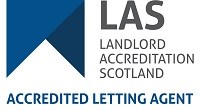Completing a self assessment as a landlord
All landlords who experienced a tax income for the annual period from April to April have until the following 31st January to submit their tax return and make payment to HMRC.
We asked tax specialists to provide some useful tips for completing your self assessment form.
get in touch with espc lettings today
- Be aware of tax return filing deadlines. Paper returns must be filed by 31 October after the end of the tax year while online returns must be filed by 31 January after the end of the tax year.
- If you intend to submit your own online return using HMRC software ensure that you register for HMRC’s online service. This can take some time as HMRC must send an activation code by post – so don’t leave it too late.
- Collate all of the information you need before you make a start to your tax return and make sure that you have identified all of your sources of income. The main sources are employment income and benefits, self-employment, rental income, interest and dividends.
- Pay particular attention to your rental income. This is often omitted by taxpayers who either do not realise that they have to pay income tax on their profits or who think they have not made a profit simply because their rental income is less than their mortgage payments. Often the mortgage payments will include an element of capital repayment which is not tax deductible so, in reality, the landlord is making a rental profit and this should be included on their tax return.
- Remember to include details of your pension contributions and any donations made to charity under the gift aid scheme as these will qualify for tax relief at the higher and additional rates of tax (40% and 45% respectively).
- Watch out for the High Income Child Benefit charge. If you or your partner claims child benefit and your adjusted total income is more than £50,000, some or all of the child benefit will have to be repaid. The charge is levied on the parent with the highest level of income. It is collected through the tax system and therefore needs to be reported in your tax return.
- Don’t forget to include any capital gains realised on the sale or gift of assets including properties (other than your main home), stocks and shares and works of art.
- Your tax liability will be due for payment by 31 January after the end of the tax year so ensure that you have set money aside to be able to settle the tax due.
- If you are unsure about what income to include or what expenses you can claim or any other aspect of your return, seek professional advice.
What deductions are tax deductible?
The most common types of expenses that can be deducted from rental income are:
- Property letting agents’ fees
- Advertising for new tenant(s)
- Repairs and maintenance (but not improvements)
- Buildings and contents insurance
- Utility bills – for example, water rates, gas and electricity bills
- Council tax
- Legal fees for lets of less than one year
- Accountancy fees
In 2016/17, the wear and tear allowance was abolished and, instead, landlords are now able to deduct the actual costs of replacing furniture and fittings, but not the initial cost of furnishing a property.
You may also be interested in...
Scottish Letting Agent Register
ESPC (UK) Ltd - LARN1904080
ESPC Lettings are accredited with Landlord Accreditation Scotland.

